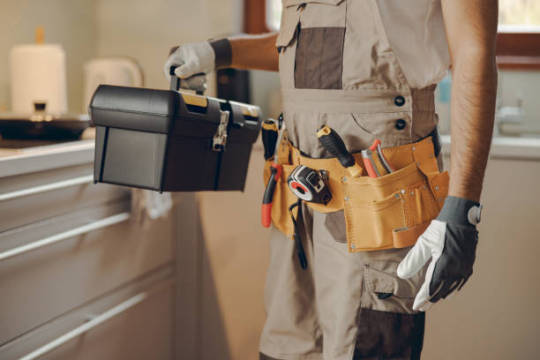Don't wanna be here? Send us removal request.
Text
Expert Tips for Enhancing Your Home’s Electrical Safety
Electricity is essential in every home, but it can also be dangerous if not handled properly. Faulty wiring, outdated electrical systems, and overloaded circuits can lead to serious hazards. Taking preventive steps can help protect your home and loved ones. This guide provides expert tips to improve electrical safety at home.

Regular Electrical Inspections Are Crucial
Scheduling routine electrical inspections ensures your system is in good condition. Professionals offering Handyman services can check for faulty wiring, outdated panels, and overloaded circuits. These issues, if ignored, can lead to fires or power failures. Regular inspections help detect problems early, reducing the risk of costly repairs. Always hire a qualified professional for thorough inspections.
Upgrade Old Wiring and Panels
Older homes often have outdated wiring that may not support modern electrical demands. If your lights flicker or you frequently experience tripped breakers, your wiring may need an upgrade. Replacing old electrical panels increases efficiency and reduces fire risks. Consult an expert to determine if your home needs rewiring.
Avoid Overloading Circuits
Plugging too many devices into a single outlet can cause overheating and electrical fires. Use power strips with surge protection and distribute appliances across different circuits. If you frequently use extension cords, consider installing additional outlets to prevent overload.
Install Ground Fault Circuit Interrupters (GFCIs)
GFCIs are designed to prevent electric shocks, especially in wet areas like bathrooms and kitchens. They automatically shut off power if they detect irregular current flow. Installing GFCIs is a simple yet effective way to enhance electrical safety. Make sure to test them regularly to ensure they function properly.
Keep Electrical Outlets Child-Safe
If you have children at home, use tamper-resistant outlets to prevent accidental shocks. Outlet covers or safety plugs can also help protect young kids. Teach children about electrical hazards and keep cords out of their reach.
Use the Right Light Bulbs
Using incorrect wattage can overheat light fixtures, increasing fire risks. Always check the recommended wattage before replacing bulbs. LED bulbs are a safer and energy-efficient alternative, as they produce less heat and last longer.
Handle Electrical Appliances with Care
Always unplug appliances when not in use to prevent energy waste and reduce fire hazards. Avoid using damaged cords or plugging appliances with exposed wires. Keep electrical devices away from water and flammable materials.
Know the Warning Signs of Electrical Problems
Some electrical issues indicate serious safety risks. Watch out for burning smells, sparking outlets, or buzzing sounds near electrical panels. Warm or discolored outlets may also signal trouble. If you notice any of these warning signs, call a professional immediately.
Invest in Whole-House Surge Protection
Power surges can damage appliances and electronics. Installing a whole-house surge protector safeguards your devices from sudden voltage spikes. This is especially useful in areas prone to lightning strikes or frequent power outages.

Call a Professional for Complex Electrical Work
DIY electrical work can be dangerous if you lack the necessary knowledge. Hiring professionals offering handyman electrician services ensures the job is done safely and correctly. Whether it’s rewiring, panel upgrades, or new outlet installations, an expert can handle the task efficiently.
Conclusion
Electrical safety should always be a priority in your home. Regular inspections, proper wiring, and safe practices can help prevent accidents. Pay attention to warning signs and never ignore potential hazards. When in doubt, consult a professional to keep your electrical system in top shape.
1 note
·
View note